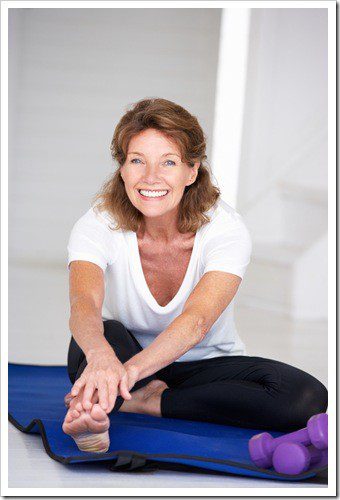
One of the key tenets of chiropractic is that health is our natural state. If someone is not healthy which is often signaled by pain or disease, we look for what could be interfering with this natural state by looking for the underlying cause.
With that in mind chiropractic care is primarily designed to improve the flexibility of spinal joints. A loss of the spinal vertebral motion can lead to spinal muscle tightness and pain, which can manifest in various other physical problems such as headaches, lack of restful sleep, and increased irritability. By increasing the mobility in your neck, mid back, and lower back, chiropractic care helps your body function more efficiently. By removing the sources of the musculoskeletal irritation, chiropractic care can also reduce internal physiologic stress. Some benefits may include improved peace of mind, and a better response to your home and work environment.
Joint Stiffness with Age
Some people experience increasing musculoskeletal joint stiffness as they get older. They may notice that their shoulders, knees, and ankles are not as flexible as they used to be. Joints such as the shoulder, knee, and ankle are lubricated by synovial fluid. Synovial fluid keeps the joints moist, provides oxygen and nutrition, and washes away toxic end-products of the normal metabolic processes. The joints in your spine are also lubricated and maintained in this way. However, aging reduces the amount of available synovial fluid. Normal aging processes increase the viscosity of the remaining synovial fluid. Simply, you have less lubricant available and the lubricant that you do have is thicker. The result is stiffer joints, throughout your whole body.
As the joints begin to stiffen you may find it more difficult to bend over and pick up a dropped object and/or it is uncomfortable to turn your head around to see the car in the next lane. If you are experiencing these symptoms, the bad news is that, left untreated, the joints will get stiffer as you get older. Ignored, the joints will lose a large amount of mobility.
The good news, however, is that you can restore and revitalize much of your youthful flexibility.
Use It Or Lose It
One way to combat such physiologic aging is to keep active. This is a pretty big task for the people of today, in a world in which most of our time is spent at a desk or sat down. Human bodies were designed for hard, physical work. But as we have evolved from an agrarian to a more industrial society, and in recent times from an industrial to a service-based society, the type of work our bodies do has changed dramatically. When we’re not typing on a computer, we are at home watching TV or playing games on our electronic devices. None of these activities involves any actual active motion.
One key to joint health in today’s society is to counter act our static lifestyle. This includes creating time for exercise. Almost any type of exercise helps synovial fluid to become more available. The pumping of synovial fluid into joint spaces increases the lubrication into the joints. Exercise also raises the core temperature of the body, which subsequently decreases the thickness of the synovial fluid. The end result is our desired result of increased joint flexibility. This benefit is, more often than not, experienced immediately. The benefit will be long-lasting, but only if you continue to exercise regularly.
Plan Your Workouts For Maximum Benefit
Thirty minutes of exercise per day, 5 times a week, will help us maintain as much joint flexibility as possible. Switching between a cardiovascular exercise day and a strength training day is the optimal exercise program. Yoga can give a total body workout which uses cardiovascular exercise, strength training, and flexibility. The types of exercise you do are not as significant as the long-term consistency of the exercise.
Most importantly, regular vigorous exercise will provide great benefit to not only improve your joint flexibility, but it will also help to improve your general health and wellness!
For Wellness,
Dr. Shannan McCormick
